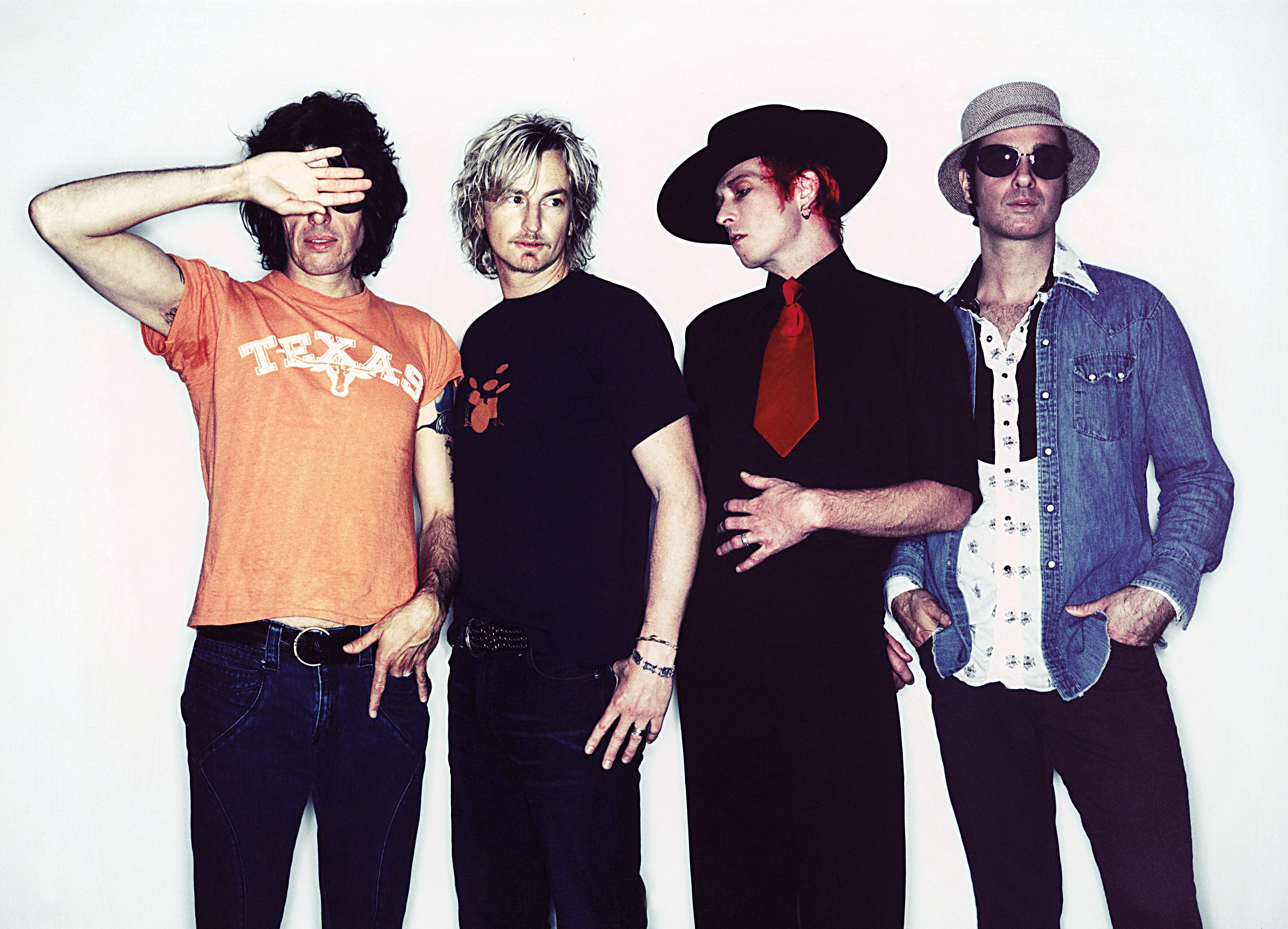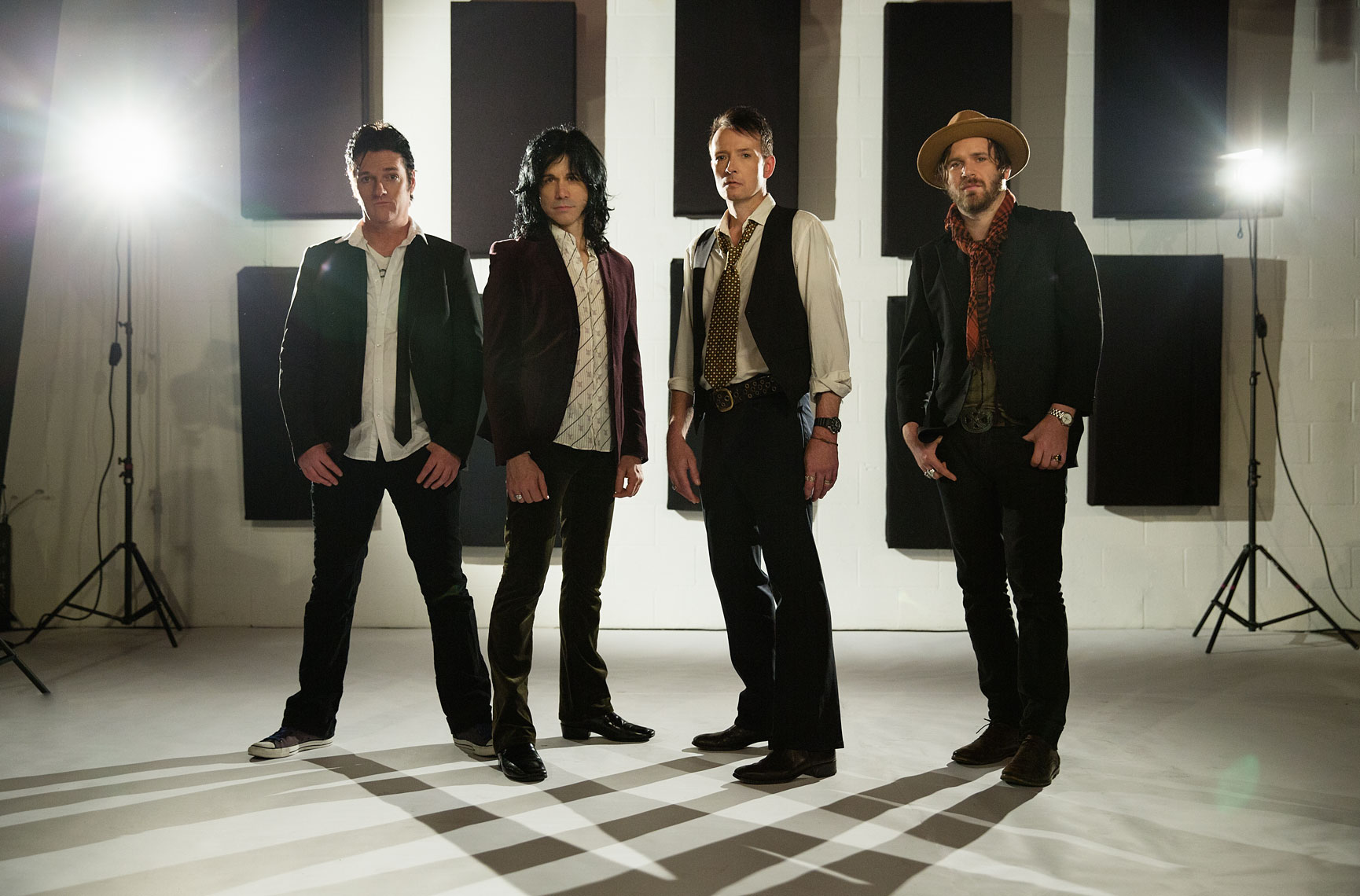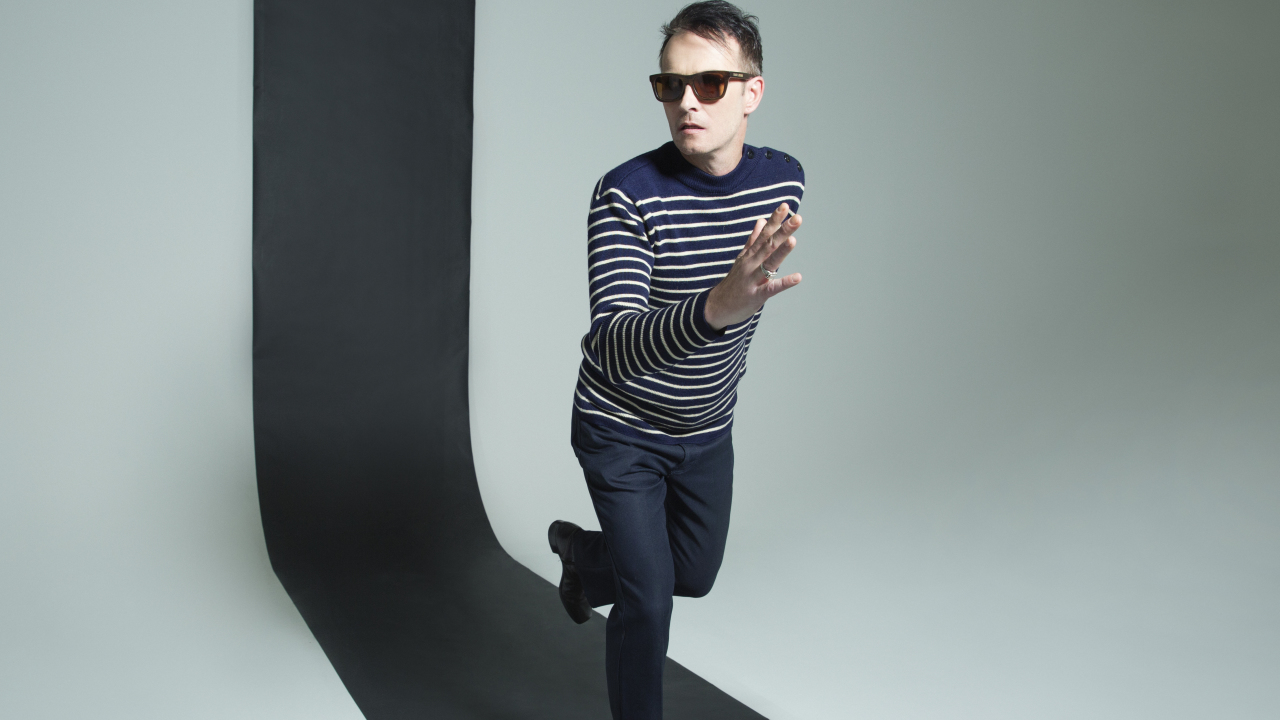In August 2014, gossip website TMZ reported that Scott Weiland was languishing in a Los Angeles county jail following his arrest for methamphetamine possession. No sooner had the opinion pieces on the inevitable fall of a troubled rock singer emerged than Weiland posted a video message on Facebook revealing that he was, in fact, in a Los Angeles recording studio working upon the debut album from his new band The Wildabouts.
That people were prepared to believe the worst says much about the reputation that precedes the singer. Today, the 47-year-old Weiland is polite but terse and a little tetchy. With the Wildabouts’ album, Blaster, on the horizon, he’s also not keen on looking in the rear-view mirror…
You were born in LA, grew up in Ohio, then moved back to California as a teenager. What do you remember of that time?
Well, it was definitely a shock. I lived in a small town in Ohio and then moved to Huntington Beach, which was much more fast-paced and intense. At high school I played sports, and hung out with guys on the football and wrestling teams, but I wasn’t a jock, I also sang in the choir, which was something that people used to tease me about. And then I formed my first band Soi Disant and music took over my life.
When you hooked up with the DeLeo brothers in Mighty Joe Young – the band that would turn into Stone Temple Pilots – was the aspiration to play stadiums or simply to play garage shows with your friends?
By the time I met up with those guys and, it was very much on my mind to create a successful band. I kinda managed the band – I was the one who booked the shows and made up the flyers and handled the promotion – and it was certainly in my mind to get us signed. We played LA and San Diego and Fresno and Bakersfield, two shows a week, for a long time before we got a record deal. We definitely paid our dues.
Stone Temple Pilots were successful right from the start. Did you find life as a rock star difficult to adjust to?
Definitely, because I came from not having anything to suddenly being a huge success and making a lot of money and having the freedom to do what I wanted to do… not all of which was necessarily good for me. The fame and notoriety was hard to get used to, particularly when people started focussing more on my addiction issues rather than the music.
Did you enjoy that notoriety in some ways? That ‘bad boy’ image helped keep STP on magazine front covers…
My life meant more to me than a magazine cover line. I wasn’t using for anyone else’s entertainment.

You wrote an article about your addictions for Esquire magazine in 2005, detailing the hellish consequences. But you made your initial experiences with heroin sound incredibly appealing.
Well, yeah, but that’s only initially. It’s something that I was involved with and that I wish I’d never got involved with, because it consumed my life for a good 10 years. That first time shooting up may have felt good, but it would never feel that good again.
What was the lowest point for you?
Going to jail was definitely a very low point. You certainly find out who your real friends are. But it was a place that focussed on recovery, not a brutal prison regime, it was more about counsellors trying to help you through a program. All I was thinking about was getting out and not getting into that situation again.
What finally made you stop doing heroin?
I got sick of going through withdrawals. The last time I detoxed was almost 15 years ago, and I haven’t thought about heroin once since then. Even if you guys like to keep talking about it.
Now that you’re clean do you reach out to help others with addiction issues?
Well, if someone has a problem – and I meet people sometimes at meet and greets who tell me they’re struggling with addiction, and I’ll offer some kind words – there’s nothing really anybody else can do until that person wants to change. I don’t have any friends now that are still users, as soon as I quit, I lost all those friends, by choice.
What made you give up on Stone Temple Pilots?
We weren’t getting along as friends as we used to, we’d become just like working partners. And there were ego conflicts and envy and jealousy and I just felt like I needed to do something different. I’d already been approached by the guys in Velvet Revolver while I was still in STP, so when we decided to take a break. I went to work with those guys and things fell together pretty quickly.
Were you wary of hooking up with such high-profile musicians, ones with their own history of addiction?
No, it seemed like an easy transition. The collaborative process went really smoothly, and live we put on some of the best shows I’ve ever done. Because we’d come from successful bands and then became a successful band in our own right, we had to keep our egos in check, and sometimes that was difficult. Looking back, maybe we could have done more, but after seven years it felt like it had run its course.
Are you a difficult man to work with?
I’ve been made a scapegoat in the past. I’m a very hard worker, and I work well in the band format, which is why I formed my new band. There’s a lot of stuff floating around in the media, hearsay about me and what I’m like, which I don’t recognise, and that was my reason for writing my book, so that I could explain things in my own words.
Your autobiography is titled Not Dead And Not For Sale. What does that title mean to you?
It means that I’m not dead and I’m not for sale.
Obviously, but beyond that?
It means what it says. I’m still here doing my thing, I’m not a sell-out and I can’t be bought.

Why not just release Blaster under your own name, rather than as Scott Weilands & The Wildabouts?
Well, the last two solo albums, 12 Bar Blues and Happy In Galoshes, were more experimental records, and I think they were difficult for some of my fan-base to wrap their heads around. This time I wanted to make a band record that was a rock record, and have that collaborative feel, because I think that stands a better chance of connecting. Because of the state of the record industry, I’ve no expectations of having a No.1 album – the days of records selling millions of copies are over for all rock bands, not just for me.
Where do you see yourself fitting in the bigger scheme of things. Do you rank yourself up there with your heroes – David Bowie, say, or the Stones?
Well, I feel fortunate that I’ve had the level of success that I’ve enjoyed, but I don’t compare myself to those guys; they’re the ultimate icons and they’re trailblazers. I’ve always done my best to keep re-inventing myself, but I’m no David Bowie.
Do you feel you’ve got the respect you deserve as an artist?
Yeah, I feel like I have. And I still have a lot of pride in everything I’ve done. Just because I’m not in Velvet Revolver or STP anymore doesn’t mean I don’t look back on the work that we did fondly.
Are you as happy in 2015 as you’ve ever been?
Definitely. My life is completely different to what it was years ago. Music has a lot to do with that, but my wife does, too.
If you could talk now to the Scott Weiland of 15 years ago, what advice would you give him?
Look, everything that I’ve experienced in my life has made me who I am today. I wouldn’t be who I am without those highs and lows. I wouldn’t change my past. That guy can make his own mistakes.

